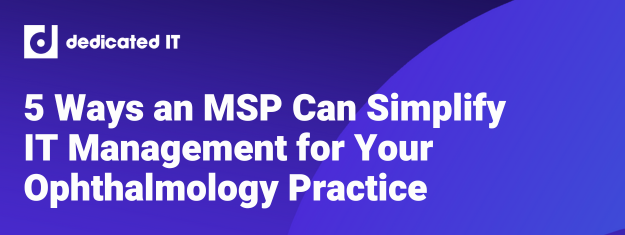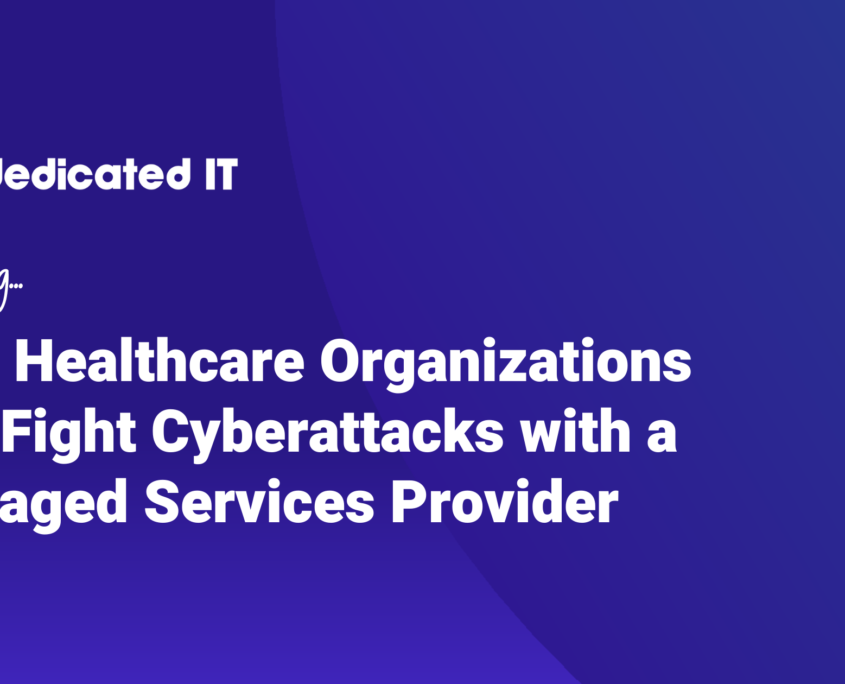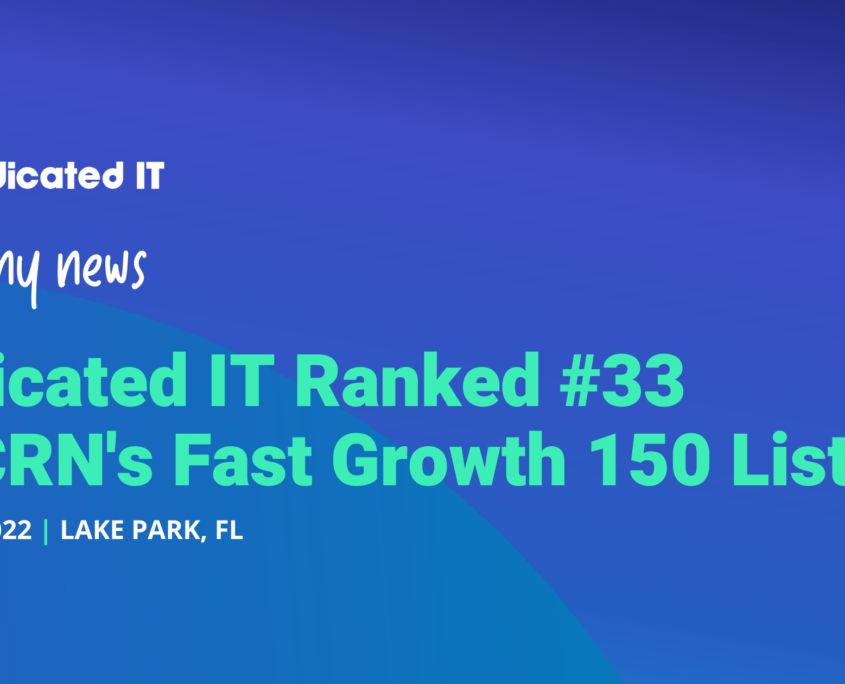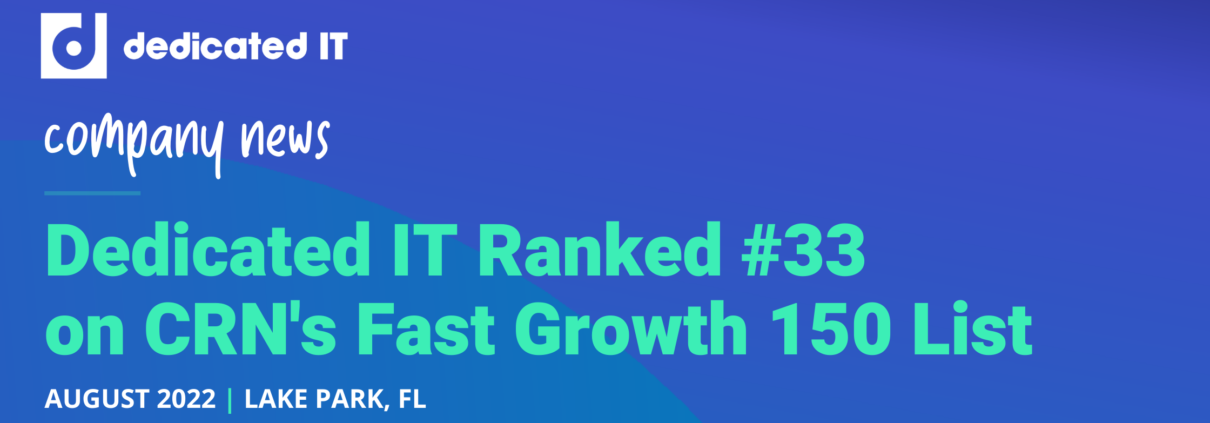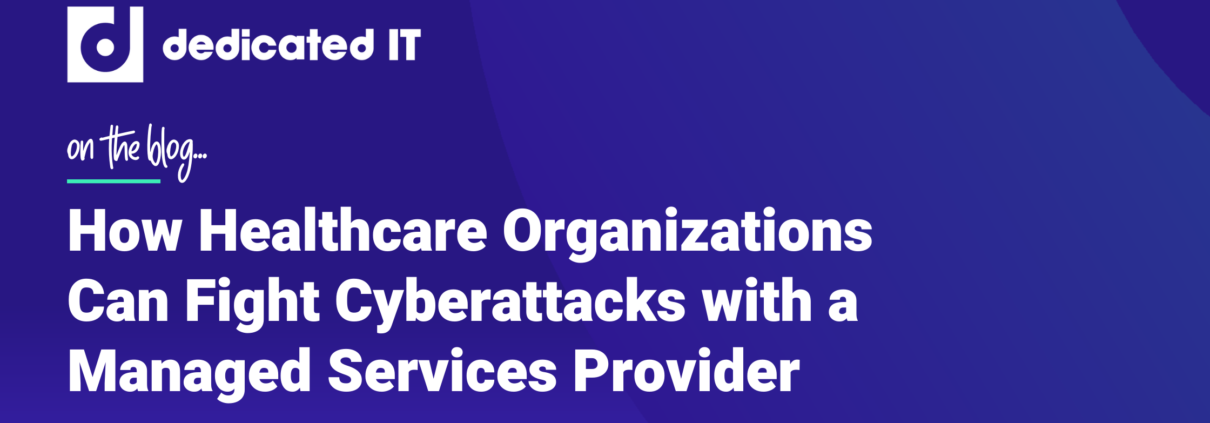Click here to add your own text
Dedicated IT Ranks #33 on CRN’s 2022 Fast Growth 150 List
Lake Park, FL – August 22, 2022 – Dedicated IT, a leading Florida-based managed services provider, today announced that CRN has named the company to their 2022 Fast Growth 150 List. This year, Dedicated IT ranks #33 on the list of 150 honorees, up from #98 in 2020.
The annual CRN list ranks managed solution providers with at least $1 million gross annual sales by their two-year growth rate. According to CRN, the 150 companies on this year’s Fast Growth 150 list recorded an average two-year growth rate of 96 percent between 2019 and 2021, and collectively generated revenue of $82.4 billion last year.
“Dedicated IT has been around for 20 years and has only recently realized national recognition for growth,” says CEO & Managing Partner, Aaron Underhill. “Unlike most companies on the CRN list, we aren’t PE-owned, and we’re growing strictly from organic means. We started hitting our stride when we doubled down on servicing the healthcare market and focused on being a trusted advisor, as opposed to servicing any client that wanted to do business with us. Over the next few years, we look forward to Dedicated IT becoming the most trusted name in healthcare IT.”
Since 2016, Dedicated IT has zeroed in on providing their managed IT services to a subset of the healthcare industry, including specialties like Orthopedics, Ophthalmology, Dermatology, and Ambulatory Surgery, as well as senior living facilities, and has put a large emphasis on building relationships with practice leaders through partnerships with associations like the American Alliance of Orthopaedic Executives (AAOE), Association of Dermatology Administrators and Managers (ADAM), American Health Care Association (AHCA), and Becker’s Healthcare, plus EMR providers like NextGen, Nextech, ModMed, and Athena. Their robust knowledge of the healthcare IT space and specialized service portfolio geared toward solving the unique IT challenges healthcare practices face played a critical role in their two-year growth rate and subsequent ranking on this year’s CRN list.
To learn more about Dedicated IT and their portfolio of healthcare-focused managed IT services, visit their website at www.dedicatedit.com.
ABOUT DEDICATED IT
Dedicated IT provides organizations with an IT service experience like no other. Everything we do is with the goal of making you better tomorrow than you are today. We want to see your business operate without IT disruptions and restrictions and innovate more than ever. Our tailored support and service model was built from the ground up with you in mind. We deeply invest in learning how your business uses technology, its security posture, and issues that will quickly turn into IT time bombs, then present a technology roadmap to help you avoid all headaches. Support from Dedicated IT only gets better with time, as we gather more data points from your technology that can be used for optimization.
Looking for your next great opportunity? Experience what it’s like working with one of the nation’s fastest growing healthcare focused MSPs. We have several open positions available for those looking to join us on our mission of making people and businesses better tomorrow than they are today. Apply now!
5 Ways an MSP Can Simplify IT Management for Your Ophthalmology Practice
Managing IT systems can be a complex task for ophthalmology practices, and it often requires a dedicated team of experts to handle all of the responsibilities. However, this can be costly and time-consuming for practices that need to focus on their core business functions. That’s why partnering with a managed service provider (MSP) can be a great solution. MSPs can help practices simplify their IT management, increase security, and reduce costs. So, what is an MSP and why should you partner with one?
What is a Managed Service Provider?
A Managed Service Provider (MSP) is a third-party provider that offers IT services to businesses. MSPs take on the responsibility of managing all or part of an organization’s IT infrastructure, such as hardware, software, and networks. MSPs provide a range of services, including monitoring, support, and maintenance. By outsourcing their IT needs to an MSP, businesses can save time, reduce costs, and improve their IT infrastructure.
5 Ways an MSP Simplifies IT Management
How often does technology cause disruptions at your practice? Are inefficient clinic workflows decreasing the number of patients your providers can see per day? Do providers complain about how technology issues prevent them from providing quality care? A good healthcare-focused managed service provider will be able to simplify IT management for your practice in a number of ways, including:
- Consolidate Vendor Management
Partnering with an MSP allows ophthalmology practices to simplify their IT management. Instead of dealing with multiple vendors, an MSP provides a one-stop-shop for all IT needs. This allows practices to focus on their core business functions and leave IT management to the experts. - Improve Security
An MSP can help ophthalmology practices improve their security by providing 24/7 monitoring, implementing security protocols, and conducting regular vulnerability assessments. MSPs stay up-to-date on the latest security threats and trends, ensuring that practices are protected against the latest cyber threats and are adhering to industry best practices. - Increase Efficiency
An MSP can help ophthalmology practices increase efficiency by providing fast, reliable support, both remotely and on-site. MSPs have a team of certified and experienced technicians who can provide assistance 24/7, ensuring that practices can operate smoothly and efficiently without any disruptions. - Reduce Costs
Partnering with an MSP can help ophthalmology practices reduce costs by eliminating the need to hire an in-house IT team. MSPs provide cost-effective solutions that are tailored to the needs of the practice, ensuring that they only pay for the services they need. - Stay Up-to-Date with Technology
MSPs provide a three-year technology roadmap that helps ophthalmology practices plan and implement technology upgrades that will improve efficiency, reduce costs, and enhance patient care. With a detailed plan in place, practices can make informed decisions about technology investments and upgrades, ensuring that they are always ahead of the curve.
Not All MSPs are Created Equal
Keep in mind when choosing an MSP, it’s important to look for a provider that specializes in the healthcare industry. This ensures that the MSP understands the unique challenges and compliance requirements of ophthalmology practices and can tailor their services to your practice’s specific needs.
The Dedicated IT team is on a mission to make healthcare practices better by simplifying their IT infrastructure with our suite of healthcare-focused managed services, and we’re eager to share with you how we’ve helped similar practices overcome their IT challenges. If you’re sick of technology disrupting clinic workflows and preventing your providers from seeing patients, let’s talk. Contact us today to get started.
How Healthcare Organizations Can Fight Cyberattacks with an MSP
Cybersecurity continues to be a pain point in healthcare
Cybersecurity is a critical pain point for healthcare organizations of all sizes and specialties. The industry faces a unique threat landscape as a successful breach could threaten life-critical services, the delivery of life-saving drugs, and prevent healthcare professionals from delivering patient care.
As increasingly sophisticated attack vectors emerge, like phishing, ransomware, and distributed denial of service (DDoS) attacks, your healthcare IT risk goes beyond financial loss and loss of privacy. Increasingly, managed IT services are crucial to ensuring security posture, controls, and defenses are in place to protect your patients, staff, and data. And regardless of the size of your healthcare practice, it’s imperative to understand that your organization is a target for cybercriminals.
The size of healthcare’s cybersecurity risk
The threat to healthcare organizations is growing as hackers increasingly target their valuable personal healthcare information (PHI). Healthcare has faced the costliest breaches of any industry for over a decade. The average breach cost organizations a record high of $10.1 million in 2022, an increase of nearly $1 million on 2021, according to IBM’s Cost of a Data Breach report.
These sky-high returns have led to a surge in cybercriminals targeting the industry. Infoblox research found the U.S. healthcare sector suffered 521 major data breaches in 2021, a 25% increase on 2020, which impacted more than 43 million patient records.
That threat is only increasing as new breaches target specialty healthcare firms, and new attack vectors are discovered daily.
Taking the fight back to cybercriminals
As new sophisticated threats emerge, you need to strengthen your security posture and defenses to protect patients and staff, secure your data, maintain a high quality of care, and deliver streamlined operations. Tactics and best practices you need to provide this include:
Improved visibility
You can only stop the security threats you can see, so it’s vital to ensure you have monitoring technology to discover and prevent vulnerabilities across your entire network.
Removing third-party risks
Vulnerabilities in third-party software are the third-most common and costly form of data breach, accounting for 13% of attacks and costing $4.55 million per breach, according to IBM research. So it’s vital to have the right tools in place to manage third-party risks effectively and onboard new vendors securely.
Employee awareness
Your employees are your first line of defense against security attacks. They need to be aware of the risks they face, the tactics cybercriminals use to target them, and be able to spot the signs of a potential malicious attack.
Robust security controls
Technologies that discover, block, and mitigate all security incidents help you to enhance data control. A minimum security measure is enforcing the use of multi-factor authentication by all staff. This ensures only authorized employees can access the data and systems they have the right to – which helps to prevent a data breach even if an attacker obtains an employee’s password. Other security controls include anti-virus, data loss prevention, firewalls, intrusion detection and prevention, mobile device management, network segmentation, threat intelligence, and vulnerability scans.
Why you need healthcare-focused managed IT services
Fighting your growing cybersecurity threats alone demands significant staffing, technology, and time investment. It requires a proactive approach to security that protects you against emerging threats, enhances your security posture, and ensures compliance with increasingly stringent industry and regulatory requirements.
Managed IT services remove the manual effort of protecting your patients’ PHI data, networks, and systems around the clock without hiring an expensive internal security team. It provides a 24/7 understanding of your risk, including new and emerging threats, and enables you to block and mitigate threats as soon as they emerge.
Bolster your security posture with Dedicated IT
Our managed IT services provide you with all the expertise and tools required to make your business better tomorrow than you are today. We help you implement a robust cybersecurity program tailored to your specific requirements, proactively discover, block, and mitigate sophisticated threats, meet regulatory expectations, and satisfy cyber insurance requirements.
Discover how Dedicated IT helps you fight the latest cybersecurity threats facing the healthcare industry and implement all the controls you need to protect your patients, staff, and data. Contact us today to get started.
